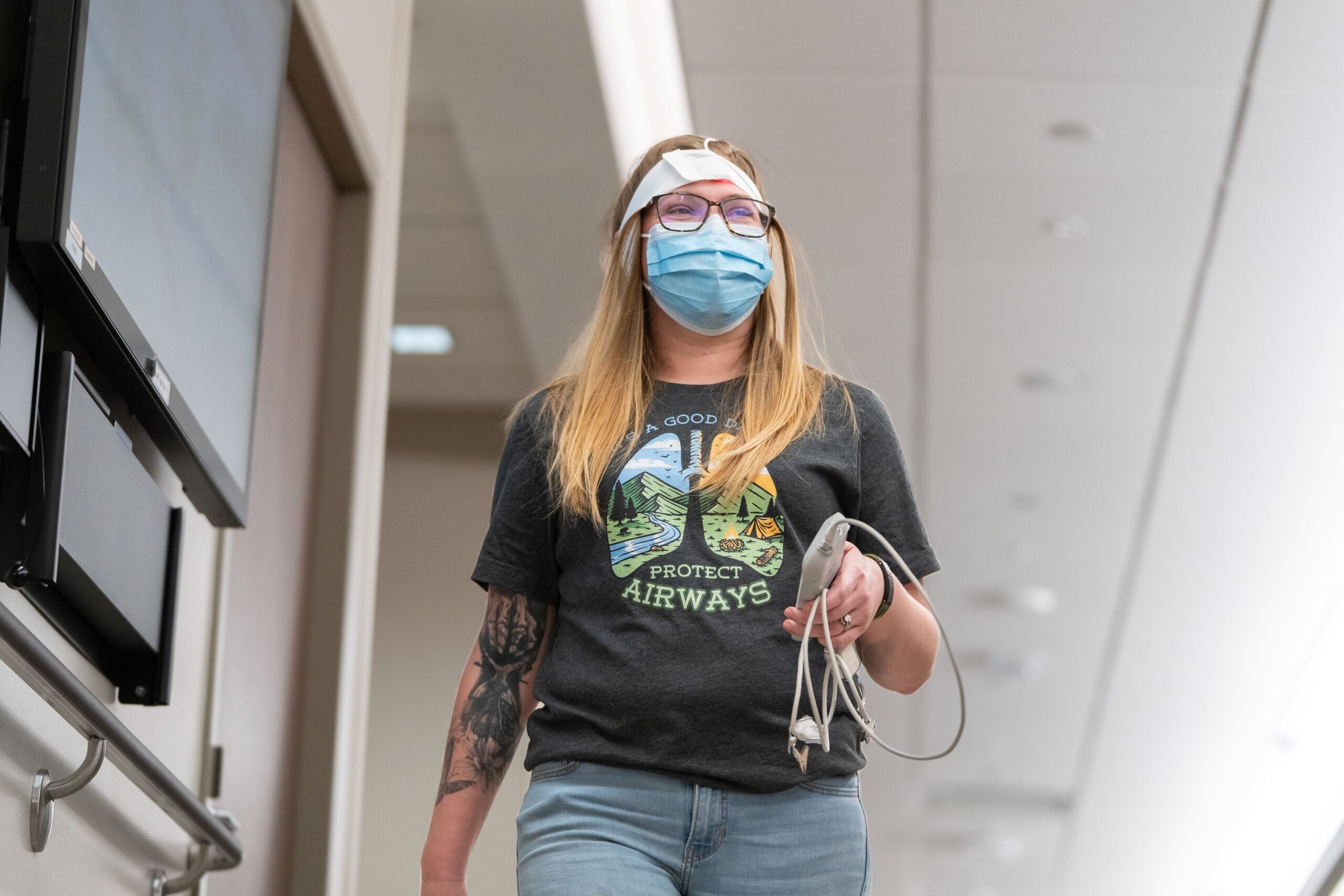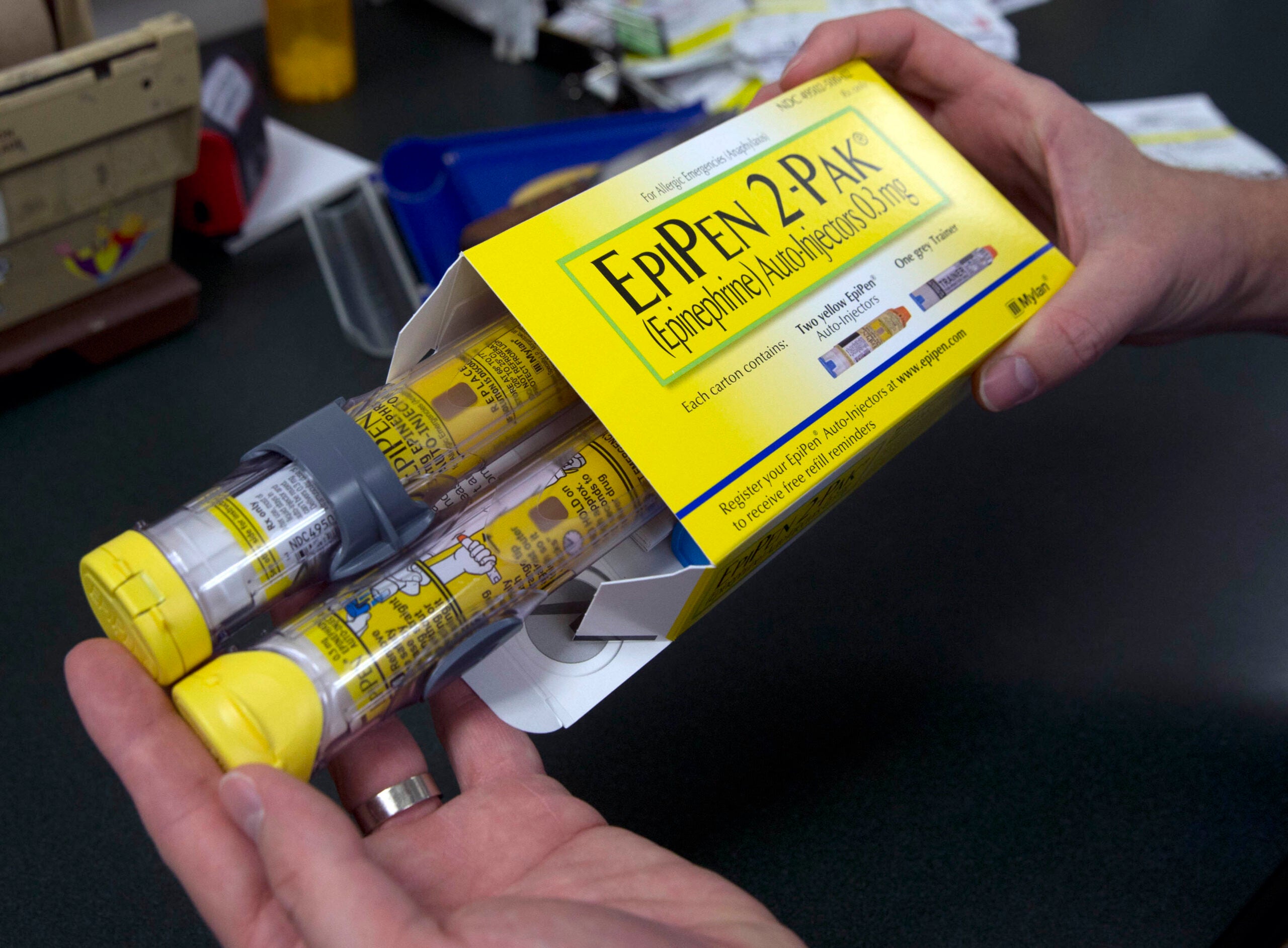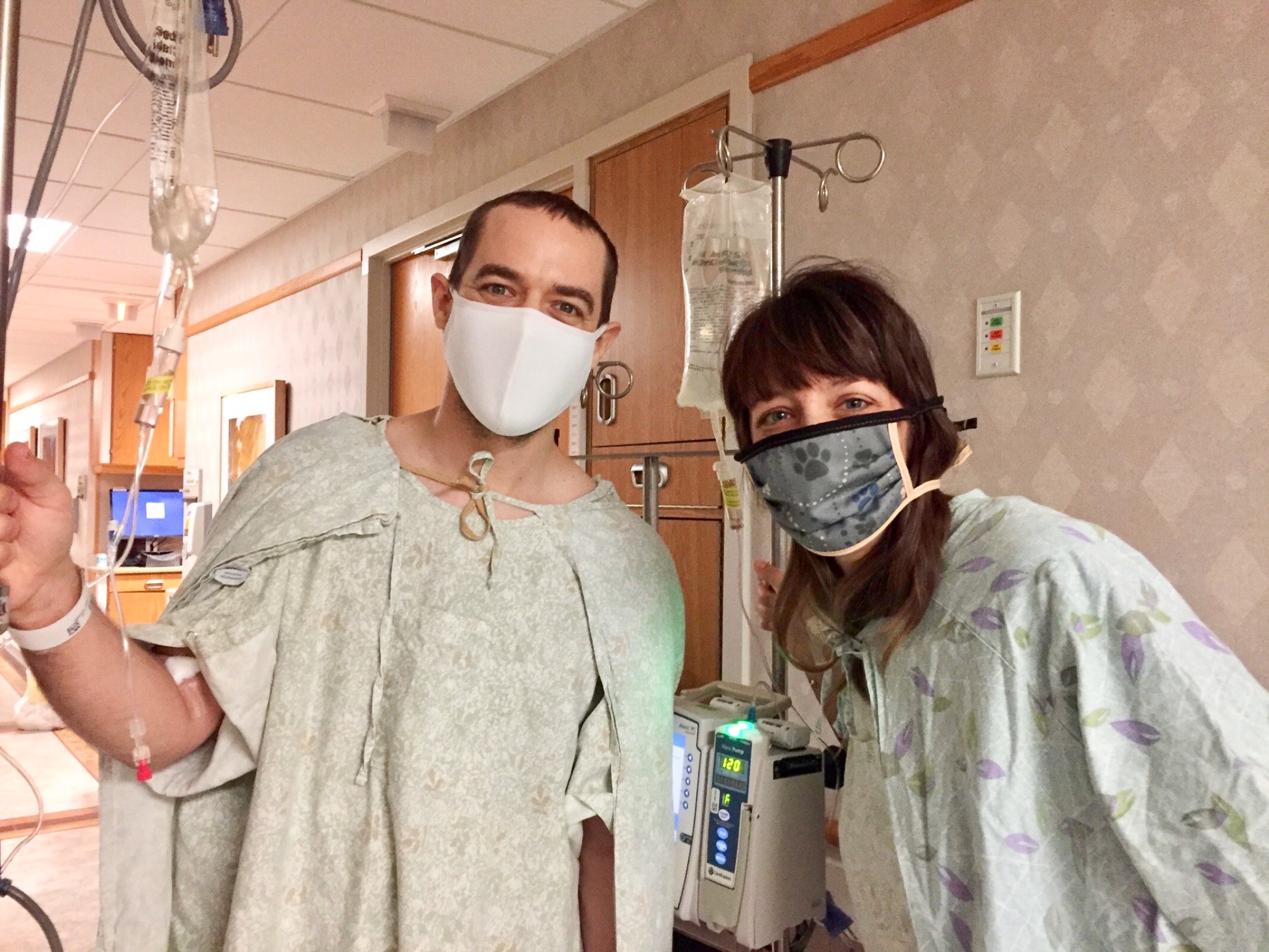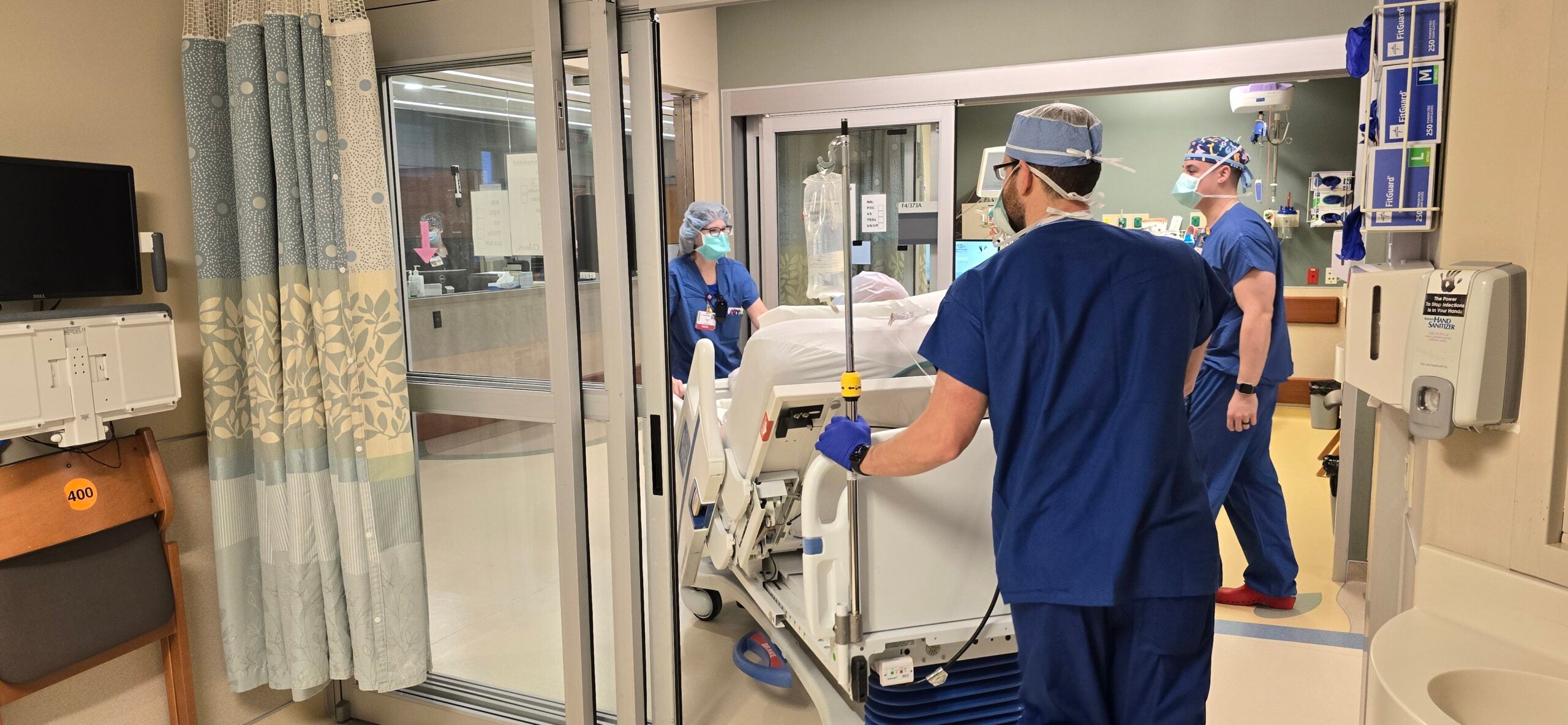In January, Kortney Zblewski of Portage County got a life-saving phone call. She didn’t answer right away.
“I thought it was a scam or something,” she told WPR’s “Wisconsin Today.”
For 84 days, Zblewski had been on the donor waiting list. She had multiple heart and lung conditions causing her health to slowly deteriorate. One of her ailments, hypertrophic cardiomyopathy, causes the walls of the heart chamber to become thicker than normal, making it harder for the heart to pump blood. The condition killed her father at age 42.
News with a little more humanity
WPR’s “Wisconsin Today” newsletter keeps you connected to the state you love without feeling overwhelmed. No paywall. No agenda. No corporate filter.
At the time of the phone call, Zblewski couldn’t walk up the stairs or play with her elementary-aged son. Despite her fears that the call was a scam, she decided to answer the phone. On hearing the news that a heart and lungs were available, Zblewski started sobbing. She immediately thought about her son.
“He just kept saying that he couldn’t wait for new organs because mom would get to play with him again,” she remembered. “So when I got the call, I was just crying out of fear, but also that he was gonna get his wish.”
There was no time to wait. That same day, Zblewski rushed to the hospital to undergo a nearly seven-hour procedure to get a new heart and lungs.
Zblewski is one of the few people in Wisconsin to have a successful dual organ — heart and lung — transplant. Only 21 other people in Wisconsin have gone through the procedure.
By comparison, there have been 13,977 kidney transplants in Wisconsin, 2,540 heart transplants and 1,284 lung transplants, according to the Organ Procurement and Transplantation Network, a national database of organ transplants and waiting lists in the United States.
The logistics of a dual transplant are complex and require a team of people to make it happen. But if successful, the results are life-altering.
Heart, lung transplant is ‘exponentially’ complicated
What’s complex about the dual heart-lung transplant is the surgeons have to prioritize both organs simultaneously.
“We have to think about the complex interaction of the heart with the lungs, because the blood flow that goes through the heart are going to pass through the lungs and then come back to the heart and go to the rest of her body,” said Dr. Yu Xia, a UW Health cardiothoracic and heart and lung transplant surgeon on Zblewski’s team said.
The surgery requires several teams: People who identify donors and recover organs, surgeons with expertise in both the heart and lungs and doctors who work with patients post-surgery.
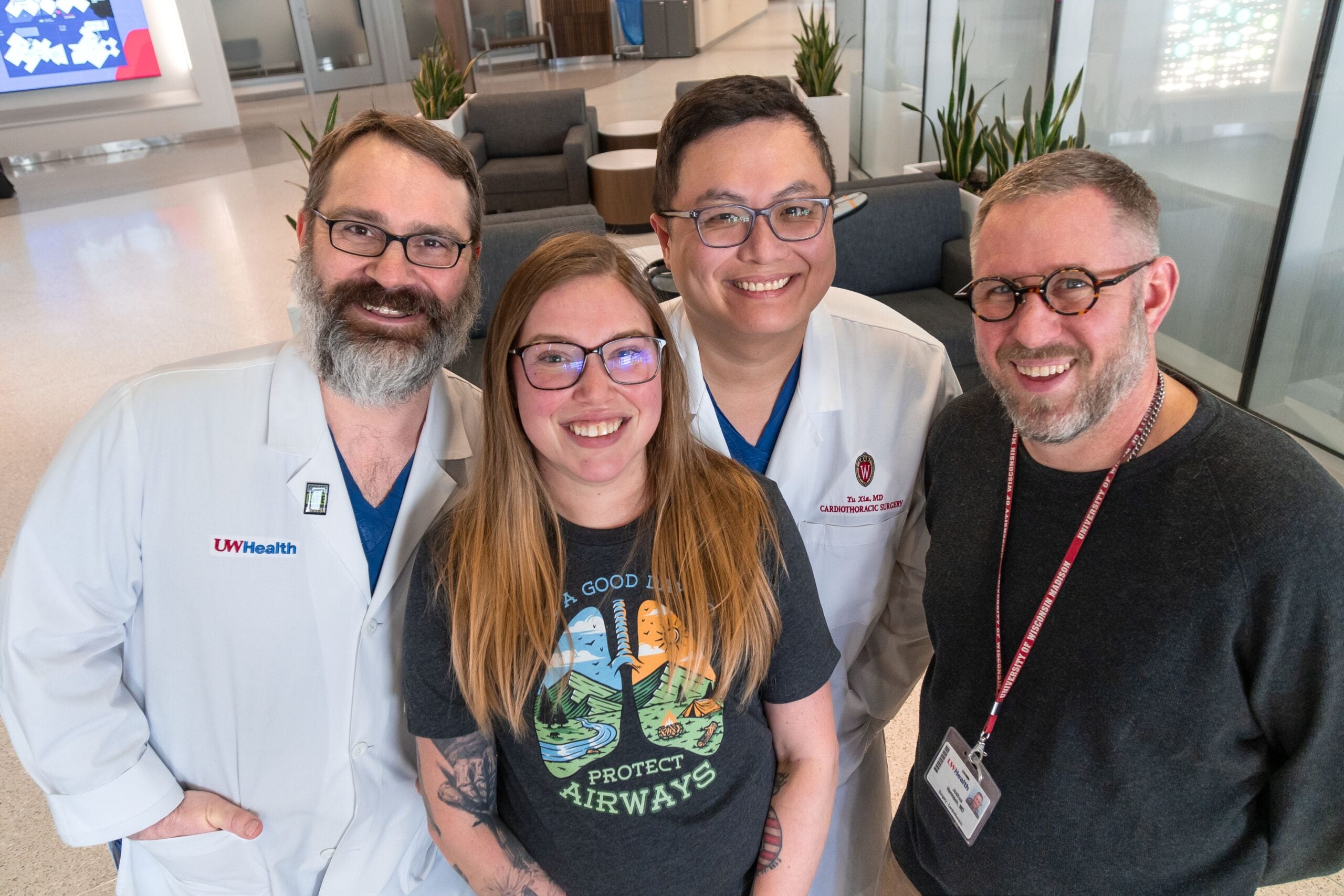
One of Zblewski’s other surgeons, Dr. Dan McCarthy, a UW Health cardiothoracic surgeon who specializes in lung transplantation, called heart-lung transplants exponentially more complicated in part because of the timing involved — most organs can only live outside a body for a matter of hours.
Zblewski did have one advantage, McCarthy said, living in the Midwest. UW Health patients have an average shorter wait time for organs than people in other parts of the country because the region has relatively easy access to both coasts and there’s a high organ donor rate in the Midwest.
“Dr. Xia and I are very conscientious about making sure that with every organ offer we don’t miss an opportunity that could save somebody’s life,” McCarthy said.
1,425 Wisconsinites need organs
In Wisconsin, nearly 1,500 people are on the organ transplant waiting list. As of April 7, the bulk of the people on the waiting list are between 50 to 64 years old. There are also 30 children under age 17 and two kids under a year old. Some have been on the list for less than a month while others have been waiting for more than five years.
Zblewski has reaped the benefits of someone agreeing to be an organ donor. She recognizes that in order for her to have the surgery, someone had to die.
She recently wrote the family of the donor a two-page letter telling them who she is. Her letter read, in part: “I’m not sure if you ever want to meet me, and if you don’t, I understand. I’m not sure I would want to meet me if I was in your shoes.” She added that if she survived, “I hope that I put enough love into this world.”
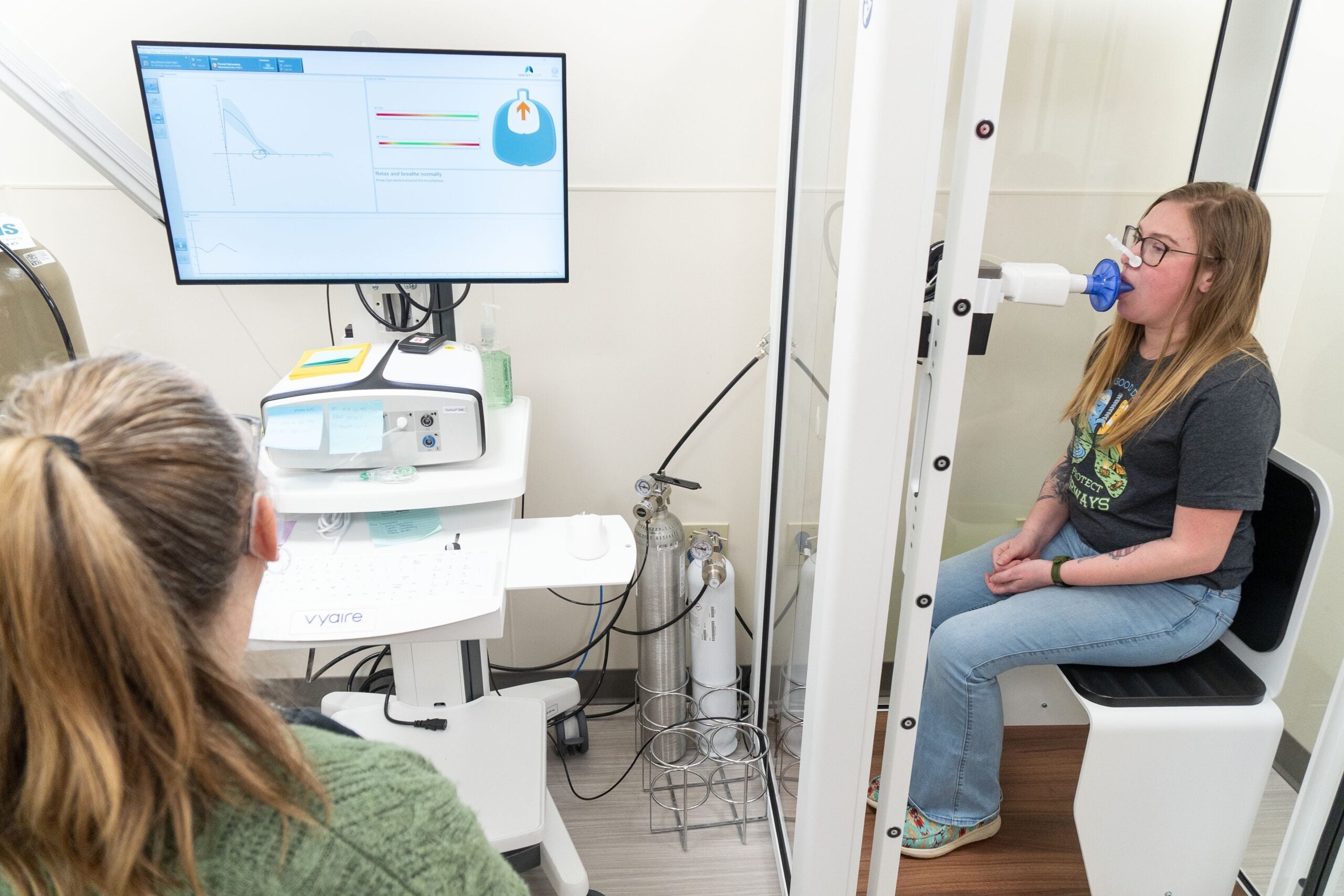
She included a picture of her and her family. Zblewski hasn’t yet received a response from her donor’s family and understands if she never does. “I’m sure they’re still dealing with their grief,” she said.
April is National Donate Life Month, a time to raise awareness about organ donation. Xia said in addition to being a complex procedure, Zblewski’s heart transplant marks UW Health’s 1,000th, something achieved by just 15 percent of transplant programs nationwide.
But that can only happen if people are willing and able to donate organs.
“If it’s something that you’re willing to consider to offer the potential gift of life to patients such as Kortney and others waiting for life-saving organs…sign up to be an organ donor,” he said.

